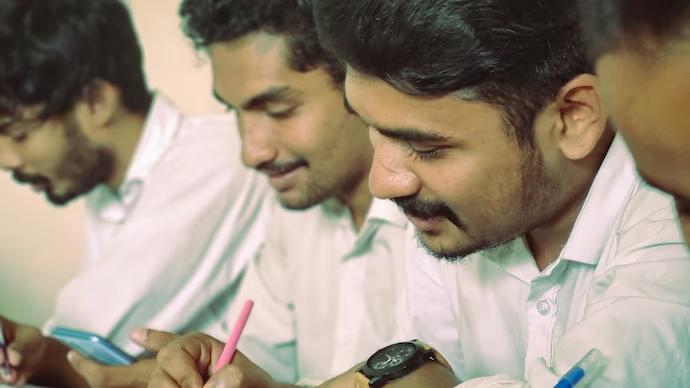WEST BENGAL is the first Indian state to have a semester-based system of examinations for Class 12 (Higher Secondary) students with effect from this year, a historic change from the long-standing annual exam format. West Bengal Council of Higher Secondary Education (WBCHSE) informed that from the 2025-26 academic session, the annual examination pattern — introduced in 1978 — will be scrapped.
WBCHSE President Chiranjib Bhattacharya acknowledged the comprehensive change while announcing the WEST BENGAL Class 12 results on Wednesday. Under the new structure, Class 12 students will appear for third semester exams between September 8 and 22, with the fourth semester exams to take place from February 12 to 27. The final mark will be calculated through cumulative performance across these two semesters.
The majority of the subjects under this new format will have shorter duration exams, with papers being 1 hour and 15 minutes long, aside from music and some vocational courses. The new format also seeks to level the balance of assessment strategies: while semesters one and three will have an emphasis on multiple-choice questions (MCQs), semesters two and four will have short and descriptive answers given priority, in an attempt to improve students’ writing skills.

WEST BENGAL’s policy change raises a fundamental question: How will this semester-based system impact learning outcomes, stress levels, and academic performance of Class 12 students throughout the state?
The state education board stated that the semester system would enable a more modular learning approach, minimize last-minute academic stress, and facilitate developing study habits. Officials further added that by breaking up the syllabus into multiple terms and including diverse question formats, the action would promote both conceptual understanding as well as application-based knowledge.
In a gradual incremental development, new-generation subjects like Artificial Intelligence, Applied AI, Data Science, and Science of Well-Being would be added to the WEST BENGAL Higher Secondary curriculum. The addition of the subjects is intended to make school education relevant to current career development trends and industry needs. WBCHSE President Bhattacharya stated that the new subject options would provide students with greater flexibility and promote interest in advanced studies.
Notably, the board also provided an opportunity for 2024–25 HS examination failed students. Such students can be permitted to opt for the new semester-based system, albeit only through formal admission through their respective schools. This presents a possible second chance for weak students to salvage their academic path under the new framework.
Under the transition plan, the board is also formulating new syllabi and new exam guidelines, which will be intimated to schools long before the new session starts. Teachers in WEST BENGAL will be oriented and trained in programs to align themselves with the changes in assessment and pedagogy.
While that, the WEST BENGAL HS 2023–24 results were announced on May 7, with a good performance in all streams. Of the 4.7 lakh students who took the exam, over 4.3 lakh passed, with an overall pass percentage of 91.86%. The Science stream had the highest pass rate at 99.46%, followed by Commerce at 97.52%, and Arts at 88.25%. Officials described the results as proof of steady academic performance all around.
The transition to a semester system follows the National Education Policy (NEP) 2020, which suggests flexible curriculum models and ongoing assessment patterns. Whereas WEST BENGAL has done this reform on its own terms, educationists view it as a pioneering model which other states might follow in the near future.
Some principals and teachers of schools in WEST BENGAL have greeted the change, describing it as much-needed modernization of the antiquated annual exam system. “This system will break the cycle of stress students go through leading up to final exams. Periodic assessments make the learning process more holistic,” said a principal of a government higher secondary school in Kolkata.
But some education experts have warned that strong teacher training, proper communication with the stakeholders, and readiness of infrastructure will be vital for the success of the transition. “Semester systems will be effective if exams are meaningful and learning is regularly reinforced in classes. WEST BENGAL needs to ensure that the system is not cosmetic,” said a retired WBCHSE academic counselor.
With WEST BENGAL now taking the lead in exam reform at the higher secondary level, the focus is on how this change will influence academic conduct, cut down on rote learning, and improve critical thinking abilities. The state’s bold initiative has already generated debate in educational circles regarding the future of board examinations in India.
As the 2025–26 academic session approaches, all eyes will be on how WEST BENGAL implements this major reform on the ground — from teacher preparedness and curriculum changes to infrastructure and student reception.
ALSO READ
TS SSC Results 2025: 92.78% Pass, Girls Lead, Mahabubabad Tops